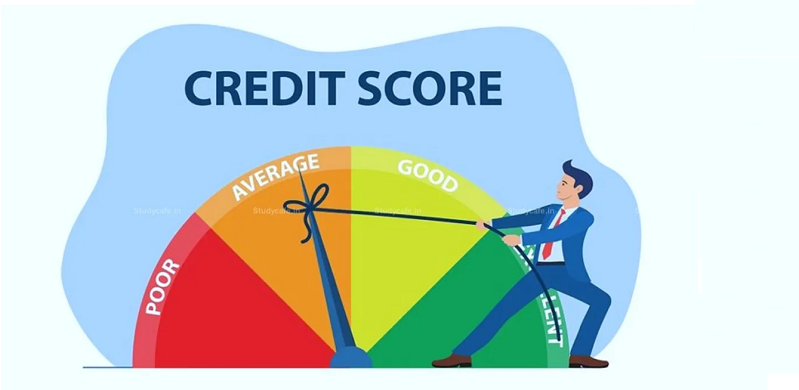
Everything You Need To Know About Credit Report
When you contact a loan or a credit card provider, they usually see your credit report. It helps them analyse your financial management, payment schedule and credit history. Based on this, they provide you with affordable credit. Thus, you may have issues with your credit report if you face loan rejection.
It could be pending debt payments, exceeded credit card limits, low employment history or credit length. Knowing about the credit report will help you make the right financial decisions. The blog discusses credit reports and their components. It helps understand the importance of having a healthy credit report for present and future financial decisions. Let’s begin with the basics.
What does a credit report imply?
A credit report summarises your credit history, including the types of accounts that you have, your credit limits and payment history. Popular credit agencies like Experian provide information about your recent transactions and debts to creditors. It forms your credit history.
There are 3 types of credit agencies in the country. Different agencies provide different credit reports based on their analysis criteria of your finances. Accordingly, the credit score may differ. Experian is the most popular credit agency in the country. The report it provides helps the creditors analyse the individual’s loan or credit card affordability.
What parameters does a credit report include?
A credit report includes multiple parameters like payment history, debts, collections, bankruptcy, employment status, etc. It may help you decide when to apply for a loan/credit card or improve rental prospects.
Yes, prospective landlords also consider a few factors before renting. Knowing credit history parameters and improving these helps you spot affordable and personalised financial options. Here are some parameters that your credit report includes:
1) Personal information
It includes name, residential address, contact number, citizenship, social security number, electoral roll, and Date of Birth. It verifies your identity as a UK citizen.
2) Credit account information
It includes information about your finances from credit agencies like Experian. It contains several credit cards, total bank accounts, mortgages, student loans, car loans, etc.
It also includes- the date when the accounts were opened, the total debt amount, credit limit, and payment history. However, it may not contain any old paid debts or accounts that Experian shares no record of.
3) Credit inquiry information
There are two types of credit enquiries: soft and hard enquiries. Soft credit enquiries include checking your credit report and reporting delinquencies to credit agencies. Alternatively, creditors conduct soft credit assessments that do not impact your credit score.
Your credit score is a 3-digit number the credit agency provides after analysing finances and debts. This figure helps you understand whether you will qualify for affordable credit cards or loans. It also helps fetch cheaper rentals and mortgage rates. Thus, your credit score remains the same after a soft credit check.
Alternatively, hard credit checks can be reported to your credit report. Every other lender or credit card provider can see it. It is unlike soft credit checks. Eventually, it drops your credit score tentatively.
For example, if you need cash urgently but your credit score is below 520, you have a bad score. It limits the possibilities of approval or even fetching affordable rates. Here, you may search options for bad credit no guarantor loan in the UK premises. It helps you finance critical cash needs without a third-person guarantee. It is beneficial for students or tenants seeking individual emergency financing options. Individuals with low debts, high incomes, and a lengthy credit history may get low-interest loans.
These loans have competitive terms. However, maintaining regular payments until the loan term impacts the credit report positively. It increases your credit score and improves your prospects to get better terms next time.
4) Public Records
Bankruptcies are the only public record that appears on your credit report. It is a legal procedure under which the person declares himself bankrupt. The solicitor helps the debt closure process by paying the dues to creditors. It could be as assets, cash or liquid investments. Creditors, in this case, can legally claim their pending payment clearance.
The borrower or insolvent files for Chapter 7 or Chapter 13 bankruptcy. In Chapter 7 the authority discharges you from any potential debts. However, it is only for the individuals who declare themselves bankrupt. It is not valid for the businesses; they must pay the dues. Bankruptcy lasts for 12 months. After that, debts are written off. However, in some cases, you might have to pay a certain percentage of your new income to creditors. It is in case the creditors do not claim property or assets.
Alternatively, Chapter 13 is a bankruptcy that allows businesses to pay a portion of their earnings to pay the dues. It is for those who don’t qualify for Chapter 7. You can pay the dues through repayment plans or debt consolidation, as suggested by the court. Trustees look after your finances for a set time. You would need to make payments according to affordability. In exchange, you can retain your precious assets from seizure.
Chapter 7 bankruptcy lasts 10 years on your credit report even if you pay debts. Alternatively, Chapter 13 bankruptcy may be written off after 7 years.
Who may check your credit report?
Having a credit report is essential whether you are just 18 or 25. It helps you in multiple ways as listed above. Some individuals, apart from a landlord, who can legally check your credit report include:
a) Loan or credit card providers
It helps creditors analyse certain credit aspects and finances before lending. Checking credit reports is a part of a responsible lending structure. Alternatively, credit card providers also check one to ensure affordability. They would not provide new credit cards or exceed the limit if you can’t afford to pay back.
b) Employer
If you are seeking a job or switching one, your new employer may demand a credit report in addition to other documents. It helps him analyse your previous employment history, unemployed years, and payment management. Based on this, he decides whether you could be a responsible employee.
c) Car finance companies
A credit report is essential if you plan to purchase a car on finance soon. It helps them analyse recent income and expenses. Moreover, they check credit scores before providing car financing. Individuals with low credit scores are required to provide a high amount upfront. It helps them qualify quickly.
How frequently should you check and analyse credit reports?
You can check your credit report anytime. Checking it multiple times does not hurt your credit score.
However, according to fact, “You should check your credit report at least once a year.” It will help you know the delinquencies and debts harming your credit score. You can also check it before applying for a new loan, or credit card and seeking overdraft facilities.
Alternatively, you can review bank statements, credit accounts, and utility payments every month. It will help you reduce debt spirals.
How to dispute wrong credit information on a credit report?
Yes, you own the right to dispute information on the credit report that you believe is untrue. For example, if you pay the credit card bill and your credit report reveals unpaid status, report it. However, wait 30-45 days before reporting. The credit agencies take that much time to release updated credit reports. Here are step-wise guidelines to dispute wrong information:
1. Step-1- review information
Credit agencies like Experian create reports by separating the financial record sections. For example, it may include sections like credit card debt, bankruptcy, payday loan debt, utility, etc. Identify the section that reveals the discrepancy.
2. Step 2- Choose the account to dispute
After spotting the section, choose it and click “start dispute” on the right side.
3. Step 3- Select the reason to file a dispute
You can review the menu and choose the exact reason for your dispute application. Sometimes, you may not find the exact reason. Choose a similar one in that case. Additionally, submit the required documents to support your case.
Bottom line
Thus, credit reports form the crux of your financial lifestyle and are the key to enhancing it. It includes aspects like credit score, employment history, payment history, and personal information. These aspects help the creditors and credit card providers analyse affordability. An individual with a stable credit report with low liabilities fetches better terms.


